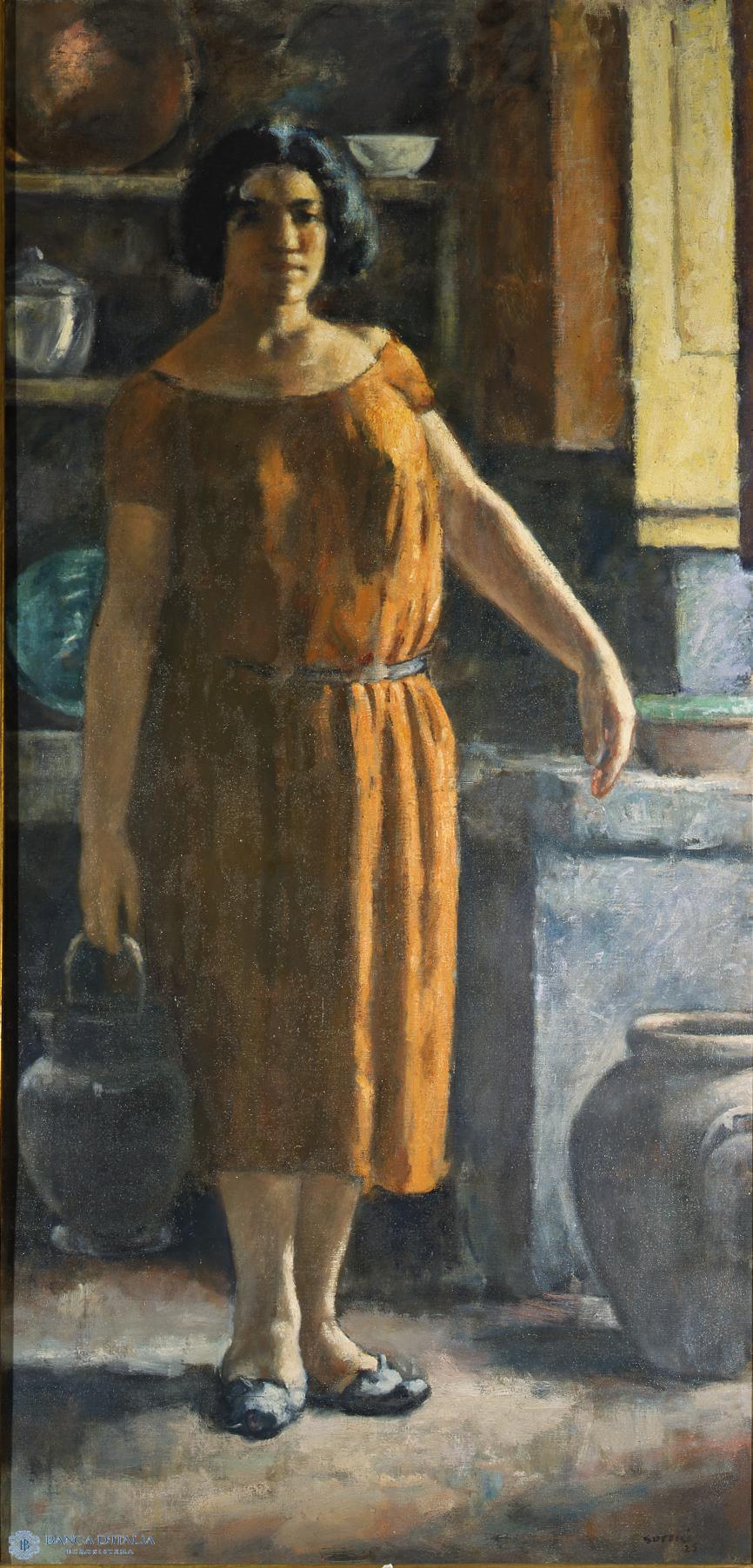Ardengo Soffici was born in Rignano sull’Arno in Florence in 1879 and died in Poggio a Caiano (Prato) in 1964. At the age of 20 he was in Paris, the first Italian intellectual (apart from Marinetti) to come into contact with the world of the Avant-Garde and international culture. In those years he was unsure whether to choose writing fiction, non-fiction or painting. His precocious writings on Impressionism and the sculptor Medardo Rosso are worthy of note.
He was involved with the movement that was spearheaded by the review Leonardo and, shortly after, together with Papini and Prezzolini he was one of the founders of La Voce and then of the other review Lacerba which published his sometimes controversial art criticism.
As a painter, following a period of echoes of the Nabis group and the work of Cézanne, in 1913 he joined the Futurist movement, continuing with both his writing and his painting. However, his Futurist period, with work which was more Cubist than Dynamic Futurist, did not last long and Lacerba, which had become the review of the Futurist movement, had a short life.
After his experimental literary essays in 1920, the year of his first personal exhibition in Florence, Soffici became the leader of the Italian “Return to Order” movement. In the meantime, his painting made its mark at the 1926 Biennale and in an exhibition with Carrà at the Galleria Pesaro in Milan, presenting itself as the prototype of a countryside classicism linked to the Strapaese movement of Maccari which abhorred the innovations of the Avant-Garde. He continued to show his work at the Biennale and Quadriennale exhibitions while he developed some autobiographical aspects in his literary work. He lived in isolation in Poggio a Caiano, writing his autobiography in four volumes in which he reconstructed the experiences of his youth. In 1933 he published his translation of the volume Profitti e perdite dell’arte contemporanea, persisting in his conservative views, marked by a deep cultural chauvinism in favour of Tuscany.
Ardengo Soffici
Ardengo Soffici (Rignano sull'Arno 1879 - Poggio a Caiano 1964)
20th century AD


